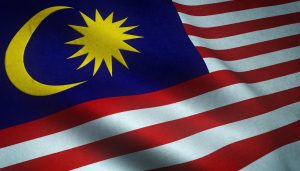Malaysian police have opened an investigation into the disappearance this month of a Myanmar democracy activist and her family, refugees recognized by the United Nations. On Tuesday, the country’s police force said that it would look into the disappearance of 46-year-old Thuzar Maung, her husband, and their three children, who rights groups say were abducted by unknown assailants on July 4.
In a statement on July 17, the rights group Human Rights Watch (HRW) reported that the five were abducted in an apparent “planned operation,” based on reports from witnesses and CCTV footage. HRW reported that a police car entered their gated compound in Ampang Jaya, Kuala Lumpur, at around 4:30 p.m. According to HRW’s account,
Two hours later, Thuzar Maung was on the phone with a friend, who heard her yell to her husband that unknown men were entering the house, before being disconnected. At about 7:10 p.m., the same car and the two cars owned by Thuzar Maung’s family were seen leaving the compound.
According to the rights group, the license plate on the car was later found to be fake. In the statement, HRW’s Asia Director Elaine Pearson called on the Malaysian government to “urgently act to locate the family and ensure their safety.”
The following day, Selangor police chief Hussein Omar Khan confirmed to Reuters that the police had opened a missing persons inquiry after receiving a report on the family’s disappearance. He said that the investigation would “investigate any element of crime, including kidnapping.”
Malaysia has been a key destination for Myanmar nationals who have fled the country’s metastasizing conflicts, including tens of thousands of Muslim Rohingya.
It is at this intersection that Thuzar Maung has been most active, advocating for both refugee and migrant rights in Malaysia and for democracy in her homeland. She serves as chair of the Myanmar Muslim Refugee Community and Myanmar Migrant Workers Committee. She has also worked closely with Myanmar’s opposition National Unity Government and has been harshly critical of the military junta that seized power in February 2021.
Despite being among the Southeast Asian states that have been the most outspoken about the military junta’s brutal treatment of its people, Malaysia has become gradually less tolerant of the Myanmar asylum seekers arriving on its shores. Since the coup, it has deported several thousand people, despite the clear dangers they will likely face on their return. Amnesty International Malaysia said this move “exposes the government’s hypocrisy in policy and practice.”
While the identity of those who abducted Thuzar Maung and her family is unclear, HRW cited friends and colleagues as expressing concern that she “was targeted for her activism.” Whether the culprits were based in Malaysia or Myanmar’s military junta has attained the ability to abduct its critics abroad, the incident is a dire sign indeed.

































